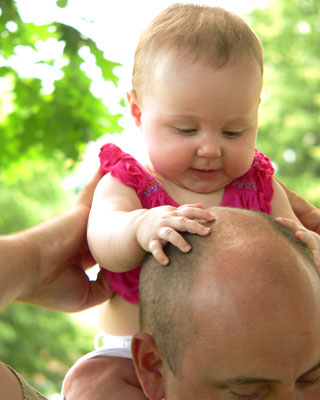All Nonfiction
- Bullying
- Books
- Academic
- Author Interviews
- Celebrity interviews
- College Articles
- College Essays
- Educator of the Year
- Heroes
- Interviews
- Memoir
- Personal Experience
- Sports
- Travel & Culture
All Opinions
- Bullying
- Current Events / Politics
- Discrimination
- Drugs / Alcohol / Smoking
- Entertainment / Celebrities
- Environment
- Love / Relationships
- Movies / Music / TV
- Pop Culture / Trends
- School / College
- Social Issues / Civics
- Spirituality / Religion
- Sports / Hobbies
All Hot Topics
- Bullying
- Community Service
- Environment
- Health
- Letters to the Editor
- Pride & Prejudice
- What Matters
- Back
Summer Guide
- Program Links
- Program Reviews
- Back
College Guide
- College Links
- College Reviews
- College Essays
- College Articles
- Back
Vaccines and Autism
In the last 20 years, autism rates have risen significantly in developed countries. In 1992, 1 in 150 children were diagnosed with an autism spectrum disorder (ASD). In 2004, 1 in 68 children were diagnosed with an ASD. Our knowledge of the autism spectrum is growing, but researchers are still trying to understand the main causes of ASD, which are still unknown. Specifically, people still question the role of vaccines and whether they are linked to ASD. The idea was first introduced by Andrew Wakefield in 1998. Wakefield and a group of 12 British scientists composed and published a study in a well-known medical journal called The Lanclet. This study showed that individuals who had been injected with the measles, mumps, and rubella (MMR) vaccine “may predispose to behavioral regression and pervasive developmental disorder in children." The study also suggested that the MMR may trigger autism by weakening the immune system. In 2004, the former editor of The Lanclet, Dr. Richard Horton, revealed that Wakefield had been paid by attorneys who were filing a lawsuit against vaccine manufacturers to drastically change the information in his study, which allowed him to make a false claim that vaccines cause autism. Since then, Wakefield research has been described as “fatally flawed,” and yet many people still believe this study. The effects of Wakefield's research on vaccines resulted in fewer vaccinations of infants, vulnerability of children to disease, and the arguments between parents and doctors.
One effect of Wakefield's study was the reaction of parents. After the study had been published and analyzed in media, panic began immediately. Alarmed parents, in the United States and Britain, began to delay or completely reject vaccination for their children, to the point where “MMR vaccination rates… plummeted." The influence of the study still remains, even after the study was exposed as fraudulent. In 2009, out of a group of parents with infants surveyed in the U.K., 25.8 percent delayed vaccination processes and 8.2 percent completely refused vaccines for their children. Even after Wakefield's study had been retracted in 2010, it was too late. As Paul Offit, chief of infectious diseases department at the Children's Hospital in Philadelphia, claims, “This retraction by the Lanclet came far too late. It's very easy to scare people; it's very hard to unscare them." Parents in both Europe and the U.S. still have lingering doubts about vaccines and whether or not they help prevent diseases or cause other problems.
Children who have not been vaccinated are more vulnerable to catching and spreading diseases. Without vaccinations, children will get sick of diseases that vaccines protect them of. As Frank Destefano director of the Immunization Safety Office of the CDC states, “Without them [vaccines], children could contract diseases that are otherwise completely preventable." If a child contracts such diseases, they are at risk of hospitalization, brain damage, paralysis, and death. Vaccines are among the “10 greatest public health achievements” of the 20th century because they have saved the lives of thousands of citizens. Yet, diseases that were in check, like whooping cough and measles, are now coming back. These diseases are highly infectious and if someone who had it were to sneeze in the room, the virus would linger for more than two hours. These diseases easily pose threats to children who are unvaccinated.
Wakefield's study has also sparked arguments between parents and doctors. Many pediatricians ask parents if they have vaccinated their children and the parents who haven’t are asked to leave and find another clinic. As pediatrician Daniel Summers states, “I always ask if the children are vaccinated, or if the parents intend to vaccinate once the child is born. If the answer is no, I politely and respectfully tell them we won’t be the right fit. We don’t accept patients whose parents won’t vaccinate them.” Many pediatricians believe that vaccines are an important innovations that has changed the field of medicine; however, they don’t know how to help parents who do not share the same views. On the other hand, parents who decide not to vaccinate their children do not know where to receive the medical help for their children because many doctors won’t agree with their views. This clash of different views has caused difficulties for some parents and doctors to get along.
Over the many years, the link between the MMR vaccine and autism has been studied intensively; however, no valid study has confirmed Wakefields results. In fact, no well developed study found any link between MMR and autism. The search for the cause of autism is described as a “tale of shifting hypothesis,” because no one has discovered the truth about this condition and its origins. Whatever the truth may be, there is no doubt that Wakefield's study has influenced many medical views and has created a long lasting controversy on vaccines and how useful they are to us.

Similar Articles
JOIN THE DISCUSSION
This article has 1 comment.

6 articles 0 photos 76 comments